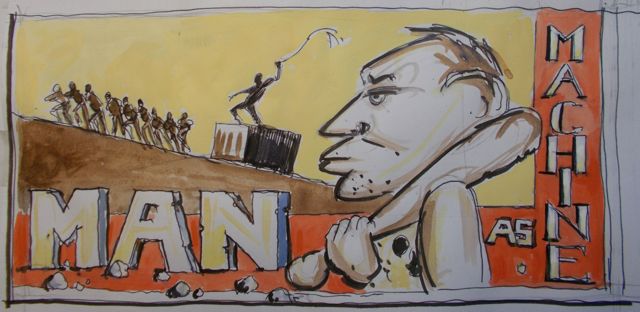 Man as Machine X
Man as Machine X
by TARQUIN O’FLAHERTY
The King’s power was nevertheless undermined considerably by news of big military defeats in America. Important aristos, people who could see the way the wind was blowing, began to desert the King. In 1780 the House of Commons resolved that the powers of the King should be reduced. He was getting altogether too big for his boots. And then, almost fortuitously, the Wilkes movement was torn asunder by the Gordon Riots.
Simply put, Lord George Gordon, a not very bright and rabid Protestant, presented a petition in the House Of Commons against a recent Catholic Relief Act. He brought with him a stirred up and angry mob, who had, without consultation, adopted the Wilkes colours. The mob set about the Honourable Members. The Members fled and the mob, eventually persuaded to leave, proceeded to vandalise every Catholic church they came across. This all happened on Friday, 2nd June, 1780. On Sunday, the entire (Catholic) district of Moorfields was burned to the ground. It got worse on Monday and spread to Wapping and Smithfield. A huge part of London’s East End was burning, and the burning had become much less selective. By Tuesday, Newgate, and most other prisons, were on fire. The authorities were terrified and had no idea what to do. Wilkes, sick of the inaction, demanded of the quaking Lord Mayor (a White Hart Association man) that he summon the troops. Volunteer groups were formed and the rioters confronted. Called on to stop, they ignored the request and were fired on. Before the riots were quelled, the dead and wounded littered the streets. Wilkes himself took prisoners of people he had formerly regarded as allies, people he recognised. The riots were finally brought under control and peace restored by the 14th of June. After this, considering the deaths and the appalling, widespread destruction, nobody wanted to be associated with the rioters’ colours, particularly as some of Wilkes’ more aristocratic associates were being charged with complicity. Both hoi polloi and influential sides of Wilkes’ movement simply faded away.
I have introduced Wilkes’ story here to demonstrate how the common people, in the 18th century had absolutely no say whatever in how a country might be governed. They were regarded less as people and more as implements, tools to get the job done. You will, of course have noted how few people voted in the Middlesex elections. To qualify as a voter you had to be a landowner. There were at most 3,000 voters in the whole county, but thousands of non-voters, people upon whom the 3,000 voters were absolutely dependent, for simply everything. Despite this they were driven from their homes like animals, their land stolen from beneath their feet. When they rioted in protest, they were shot, imprisoned or transported. This shameful, high-handed disregard for a people who were essentially the backbone of the country would not be tolerated forever.
TO BE CONTINUED.
